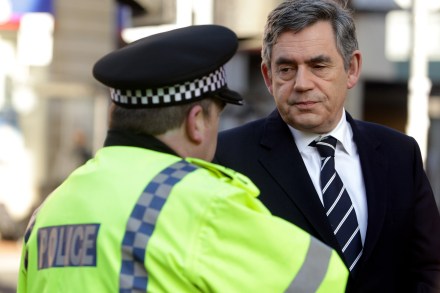Brown goes crime-fighting<br />
Yeah, I know: 4,500 words of Brown’s rhetoric is too much for most CoffeeHousers to bear. So I thought I’d read his “speech on crime and anti-social behaviour” on your behalf, and highlight three things which jumped out at me. Here goes: 1. Taking on the Tories over DNA retention. Paul Waugh has already blogged on what may turn out to be the most significant passage of Brown’s speech – at least so far as the cut ‘n’ thrust of the election campaign is concerned. In it, Brown highlights the case of Jeremiah Sheridan, who raped a woman some 19 years ago, but was caught last year thanks to DNA


















